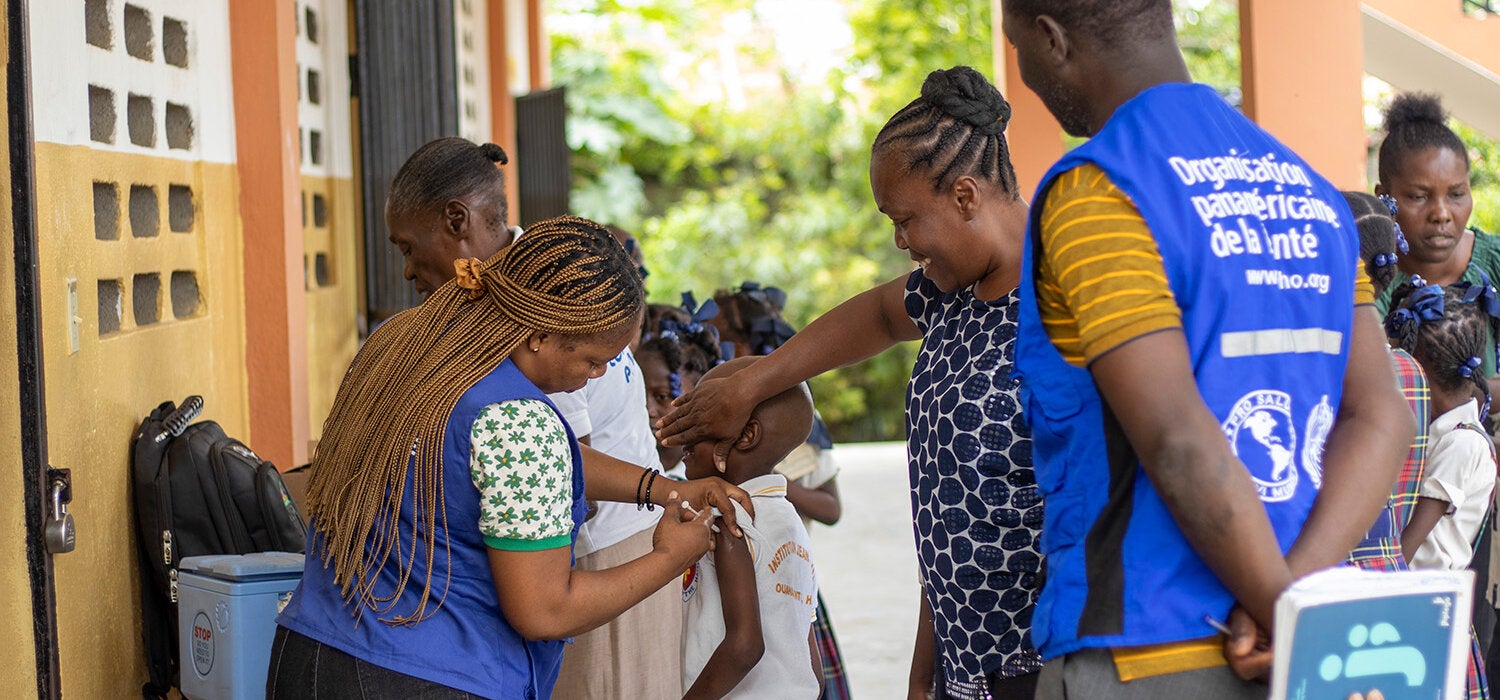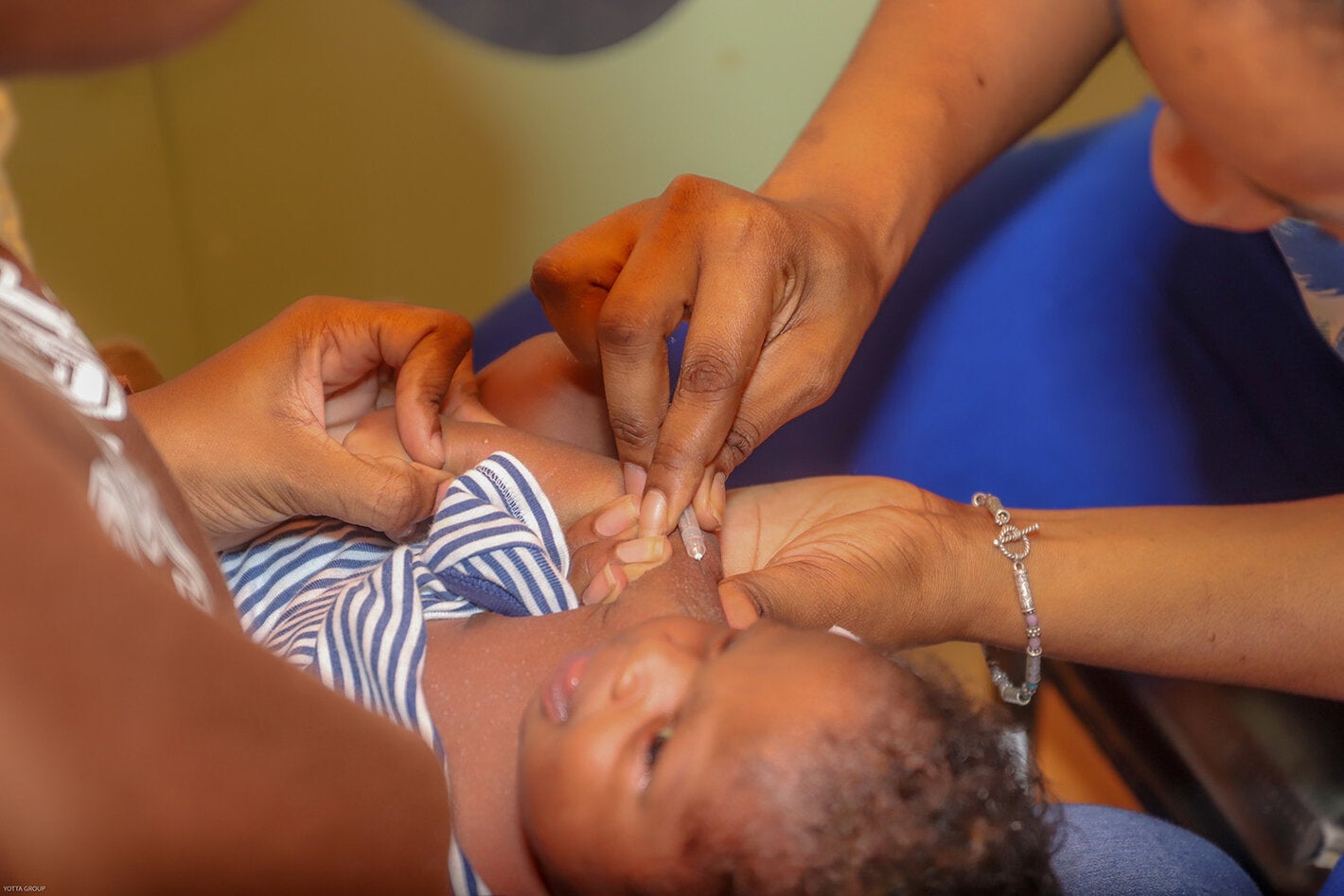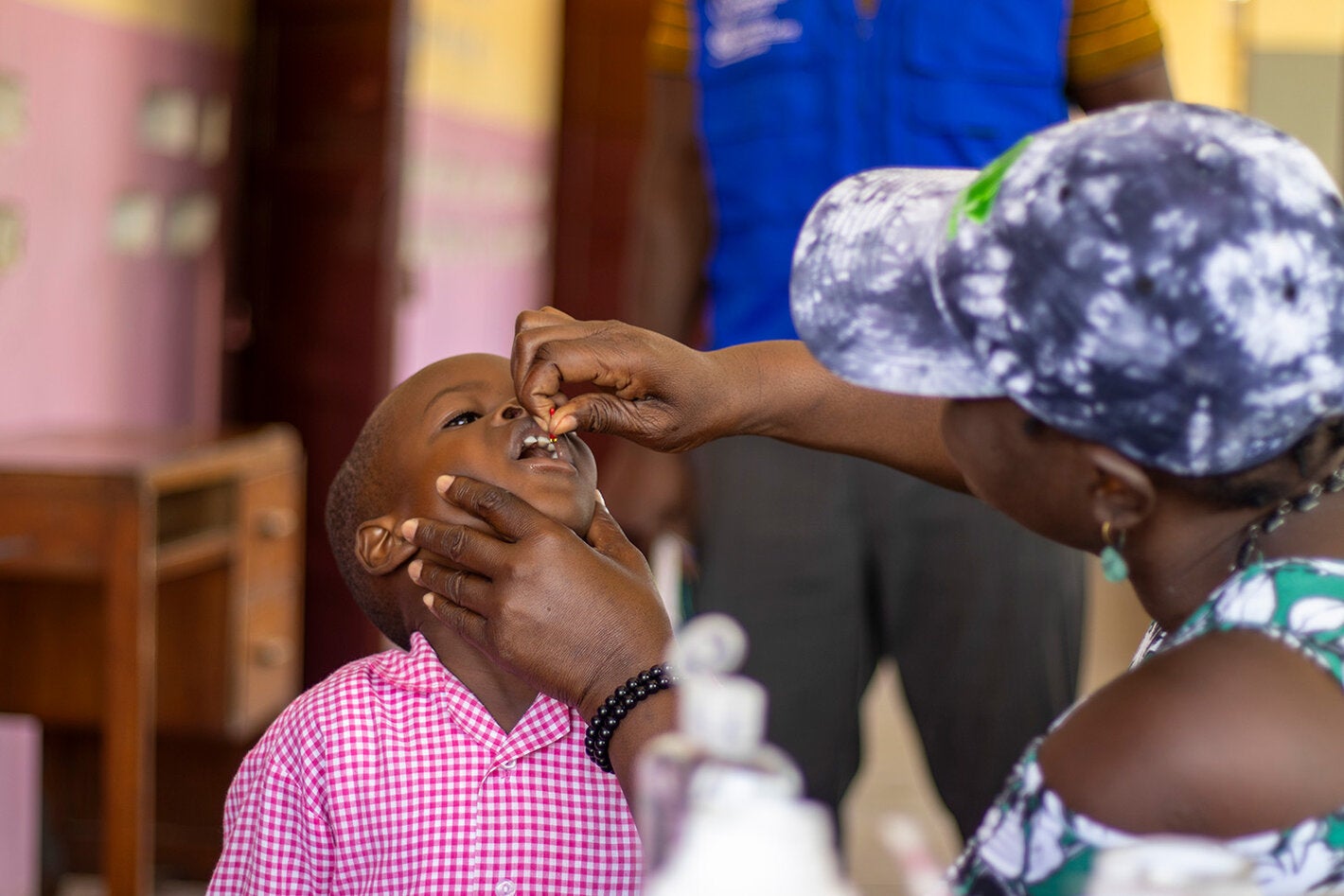“Extending vaccination services and increasing immunization coverage are national priorities for the Haitian government,” said Dr. Martial Beneche, Director of the Expanded Programme on Immunization. “Our aim is to ensure the highest level of protection for the children of our country against potential epidemics.”
As part of the intensification of vaccination, the MSPP launched operations throughout the country to “catch up” eroded vaccination rates, which declined even before and especially during the COVID-19 pandemic. Last year at least 421,000 children were vaccinated with the pentavalent vaccine. To combat recurring diphtheria outbreaks, more than 343,000 children were vaccinated against the disease.
The severity of the security crisis continues to make vaccination operations difficult. The Port-au-Prince metropolitan area and the lower region of Haiti’s Artibonite Department have been particularly affected, with people seeking refuge in improvised camps, including children and pregnant women. In some areas, such as the Carrefour neighborhood in Port-au-Prince, PAHO and the MSPP must work with community vaccinators as access for outsiders is blocked by gangs.
Still, “it’s very important to strengthen routine vaccination, especially in remote areas where many children have not received any doses or have not completed their vaccination,” said Yolande Gabriel, a health provider from the Felisane medical center in Haiti’s Southeast Department. “Sometimes parents have no way to take their child to a health center. So sending teams into the field allows these children to receive their vaccines directly in their own locality.”
Training in the norms and protocols of vaccination
To improve the skills of vaccination providers, some 105 health care professionals, including 84 women, received PAHO-supported training to become trainers in the norms and protocols of vaccination. The trainers were then involved in “cascade” trainings of 395 frontline health providers working in facilities in the field.




